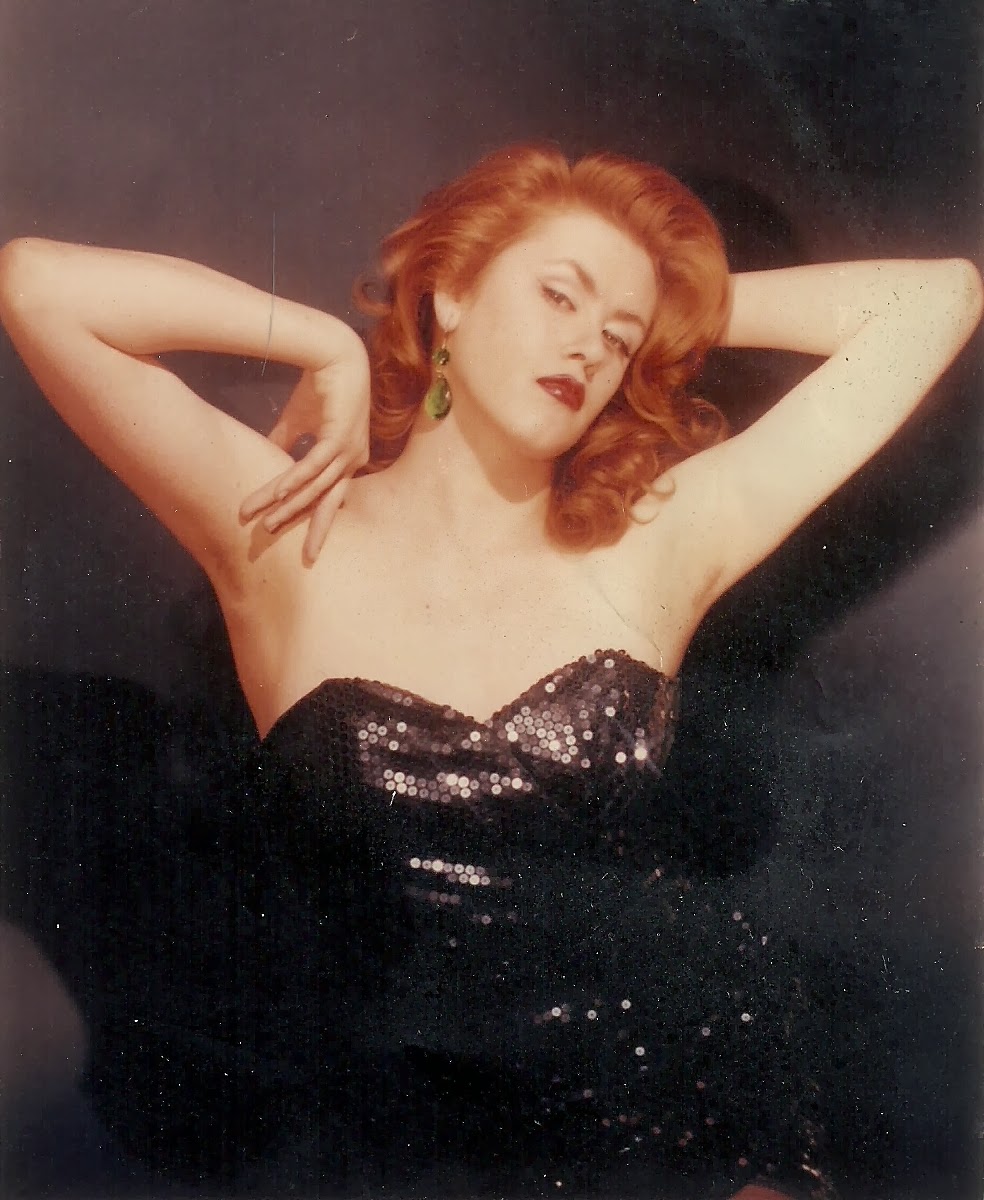Hey, who here remembers Night Flight? Back in the early days of cable, the USA Network filled its late-night weekend hours with an amalgamation of punk rock videos, concert clips, underground movies and general weirdness. It was a motherlode of odd inspiration for countless bored suburban teens. Night Flight introduced us to weird British imports like SNUB and the Some Bizarre Show, West Coast punkstavaganzas such as New Wave Theater and The Decline of Western Civilization and movies like Terror of Tiny Town, Andy Warhol's Dracula and Ladies and Gentlemen: The Fabulous Stains.
The Fabulous Stains was released to a few “art houses” for a week
or so back in 1982, the movie essentially went unknown and unseen for several years until some unsung hero (probably more like a heroine) at the USA got their hands on a copy and ran it almost every
weekend. Where it was seen by many a pre-teen suburban girl, staying up late in her parents’ rec room, dreaming of a cooler world. Courtney Love
has repeatedly babbled about how much this flick influenced her, but don’t
let that stop you: The chicks from the Donnas and Bikini Kill and guys like the
Ramones are also big fans. Naturally, seeing this movie (over and over) had a great influence on me, warping my mind and personality in a way only trumped by Gilda, Liquid Sky and repeated readings of The Bell Jar and the Edie Sedgwick biography.
It’s the classic tale of the rise
and fall of a music celebrity. Newly orphaned Corinne “Third Degree”
Burns -- played by a teenaged Diane Lane -- is caught on TV camera getting fired from
her fast-food job. She plays her 15 seconds of fame into starting a punk band
with her sister and cousin -- the latter portrayed by Laura Dern, age 13. After only three
rehearsals (“But they were long
rehearsals!”) they stumble onto a tour with coke-huffing rock dinosaurs the
Metal Corpses and surly punks the Looters. The Looters are the band in the
movie that is actually good and, as such, are played by Sex Pistols Paul Cook and Steve Jones with Clash bassist Paul Simonon alongside actor Ray Winstone as
the Johnny Rotten-as-teddy-boy frontman.
The Stains begin bad -- maybe having
a drummer would have helped -- but Corinne develops a proto-Riot Girl persona, glaring
at audiences in a skunk-striped faux-hawk and see-through top, snarling “I’m
perfect. But nobody in this shithole gets me because I don’t put out!”
She quickly cultivates a media-titillating image and the Stains go from trainwreck opening act to celebrated headliners in a few weeks. Director Lou Adler owned L.A.'s Roxy and managed acts from Jan & Dean to Cheech & Chong, so he knew something about the biz. (Also, having produced The Rocky Horror Picture Show, he was also acquainted with cult films that are unappreciated in their time.)
The contrast between the defiantly self-defining Corinne and the legion of cooing, giggling, dim-bulb groupies that surround the male rock stars is glaring. But the herds of fans that imitate Corinne turn her individuality and defiance into conformity and submission. With the help of an ambitious newscaster, a greedy promoter, and Corinne's own narcissism, the Stains eventually implode.
She quickly cultivates a media-titillating image and the Stains go from trainwreck opening act to celebrated headliners in a few weeks. Director Lou Adler owned L.A.'s Roxy and managed acts from Jan & Dean to Cheech & Chong, so he knew something about the biz. (Also, having produced The Rocky Horror Picture Show, he was also acquainted with cult films that are unappreciated in their time.)
The contrast between the defiantly self-defining Corinne and the legion of cooing, giggling, dim-bulb groupies that surround the male rock stars is glaring. But the herds of fans that imitate Corinne turn her individuality and defiance into conformity and submission. With the help of an ambitious newscaster, a greedy promoter, and Corinne's own narcissism, the Stains eventually implode.
The Fabulous Stains is eerily prescient of the media culture that
would come two decades later—if the idea of a reality show moment being played
into a crappy band being played into rock stars with legions of rabid fans but
no record deal doesn’t sound like today, what does? The mainstream co-opting of
indie/punk culture is another clairvoyant quality of this film—or, as Winstone
prophetically snarls when the Stains receive their first round of media-fetish
acclaim, “Yer just two white stripes, aintcha?”
Much of the movie’s power comes
from Lane’s performance. Corinne is childish, wised-up, Machiavellian,
generous, surly, and hypersensitive and, while she devotes much effort to
playing the media, she works just as hard to become a better musician. The 80’s setting
is authentic without being clichéd and the music is actually pretty good—the catchy
main tune, “Professional” was penned by Cook and Jones. Additionally, The Fabulous Stains provides ample swoon
opportunities for punk fans, between Lane’s beauty (imagine a teenaged Gene Tierney in warpaint and hot pants) and the gorgeousness of Paul Simonon (a tall
Chet Baker in leathers).
When the movie was released on TV,
the USA
network demanded a more “uplifting” finale, so a brief epilogue (featuring a
foot-taller Dern) was shot. But the new ending only spells out what the earlier
one only indicated, as a down-but-not-out Corinne watches a pair of
skunk-haired girls ride by on a bike, balancing an electric guitar. The Fabulous Stains ends with starting something.
Much as this movie did in real life.










































